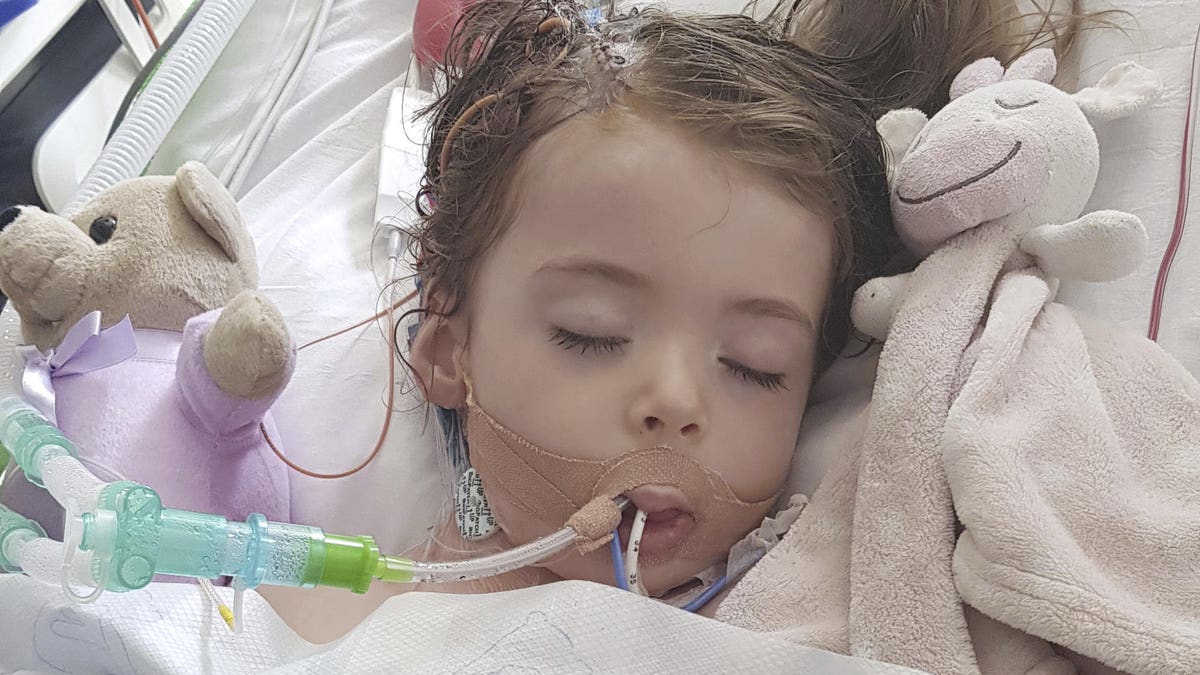Fox News Flash top headlines for Oct. 9
Fox News Flash top headlines for Oct. 9 are here. Check out what's clicking on Foxnews.com
A British family is mourning the death of their 2-year-old daughter who fell critically ill on vacation and died just weeks shy of her third birthday. Allie Birchall, who was vacationing with her family at a luxury hotel in Turkey, came down with a case of E. coli that her family is pinning on poor conditions at the resort.
“We all suffered gastric illness and there were a number of people complaining of being unwell during our stay at the hotel, but we didn’t anticipate how serious it could be,” Katie Dawson, Allie’s mother, told SWNS.

Allie had just returned from a vacation in Turkey with her family members when she fell ill. (SWNS)
The family, who has since hired a lawyer, said the food was often left uncovered or served lukewarm, and the cleanliness of the pool and bathroom facilities were often questionable.
MOM CLAIMS DIET SODA SENT HER INTO A COMA AFTER SEVERE ALLERGIC REACTION
“We saw feces in the swimming pool and I spoke to other holidaymakers who saw the feces in the pool on more than one occasion, and staff just scooped it out without closing the pool or giving it a thorough clean,” Dawson claims.
She also claimed the children’s bathrooms were covered in feces.
When the family returned home from their 10-day stay, Allie began suffering from stomach pains and diarrhea, she also wasn’t hungry and was acting lethargic, according to SWNS.
On July 30, she was admitted to Royal Bolton Hospital, where she was diagnosed with Shiga-toxin producing E. coli (STEC), which led to hemolytic uremic syndrome (HUS).
CHICKEN SALAD PRODUCTS RECALLED OVER LISTERIA CONCERNS
Nearly everyone is at risk of a STEC infection, which occurs when tiny amounts of human or animal feces enter the mouth. This may happen through contaminated food or water, or contact with feces of other people, according to the Centers for Disease Control and Prevention (CDC).
Symptoms of STEC vary for each patient, but it often causes severe stomach cramps, vomiting and bloody diarrhea. While some patients may get better within a week, others may develop life-threatening complications, such as HUS, which occurs in about 5 to 10 percent of STEC cases, according to the CDC.

Allie could not recover from the illness, and died on Aug. 3. (SWNS)
HUS may cause decreased urination, feeling tired, and loss of color in cheeks. Patients with HUS require immediate hospitalization because of the risk of kidney failure or other serious health issues. The patients who recover within a few weeks will likely suffer long-term damage, while other cases may be fatal.
For Allie, the infection caused severe brain damage, and her family decided to end life support on Aug. 3. She died shortly after.
“In sharing Allie’s story, we want to make people more aware of the signs and symptoms of STEC HUS,” Dawson told SWNS. “I kept thinking that if I had known about the condition then I would have probably taken Allie to the hospital sooner and it wouldn’t have ended the way it did.”
CLICK HERE TO GET THE FOX NEWS APP
Public Health England is investigating the child’s death, according to SWNS.
“Nothing will bring her back, we need to know what caused her illness and if anything could have been done to prevent it,” Dawson told the news outlet.

